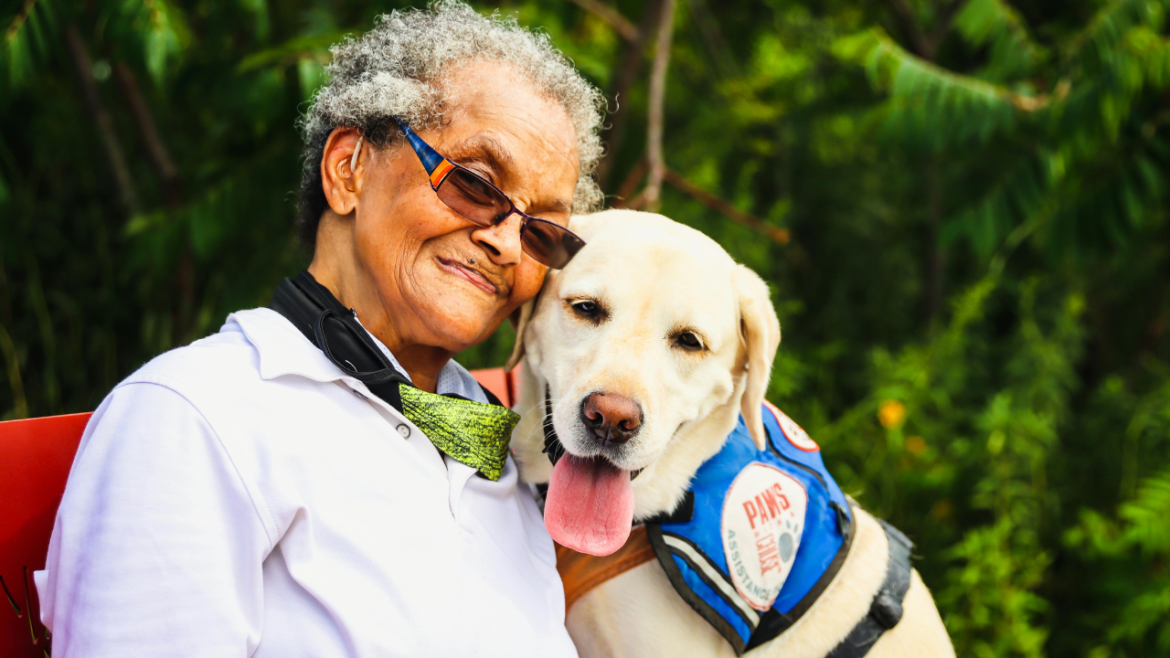The Power Of Pet Therapy For Seniors
In the quiet moments of aging, when routines slow and familiar faces fade, the warmth of a furry companion can bring an indescribable kind of comfort. For seniors, pet therapy has become more than just a pleasant pastime—it is a lifeline for emotional healing, physical health, and connection.
Whether it’s the soft nudge of a dog’s nose or the soothing purr of a cat resting nearby, animals have an extraordinary way of reaching the human heart. The power of pet therapy for seniors lies in its simplicity. It reminds them that love, in its purest form, often doesn’t need words.
The Healing Connection Between Humans And Animals
The bond between humans and animals is ancient, but its therapeutic value has only recently been recognized as a legitimate form of care. For seniors, this connection often fills a deep emotional need. As people age, loneliness and isolation become significant challenges, particularly after the loss of loved ones or the transition into assisted living. Pets bridge that gap effortlessly. Their presence offers companionship without judgment, affection without expectation, and routine without pressure.
When a senior strokes a dog’s fur or hears a cat’s rhythmic purr, stress levels drop almost instantly. The simple act of touch releases oxytocin, the “feel-good” hormone responsible for creating feelings of comfort and trust. At the same time, blood pressure lowers, heart rate steadies, and anxiety fades. This emotional exchange between person and pet forms a gentle yet powerful therapy, one that science continues to validate but the heart has long understood.
The beauty of this connection is that it asks for nothing in return. Animals love unconditionally. They do not see wrinkles or forgetfulness; they respond only to kindness and care. For seniors struggling with memory loss or depression, this unconditional love becomes a stabilizing force—a constant reminder that they are still needed, still valued, and still capable of giving love in return.
Emotional And Psychological Benefits Of Pet Companionship
The emotional benefits of pet therapy for seniors extend far beyond temporary joy. Pets can reduce feelings of loneliness and depression by providing companionship and structure to the day. Having a pet encourages routine, which helps ground seniors who may feel disoriented or anxious. Feeding, grooming, or walking an animal becomes more than a task—it becomes a meaningful act of purpose.
Animals also help bring seniors out of isolation. Pet therapy programs in senior communities or nursing homes often create opportunities for socialization. Conversations begin more easily when a dog or cat is nearby, and smiles become more frequent in the presence of animals. The shared experience of pet interaction often sparks memories, laughter, and emotional connection among residents who might otherwise remain withdrawn.
For seniors living with dementia or Alzheimer’s disease, pets can provide a sense of familiarity and calm. The repetitive motions of petting an animal or talking to it gently can soothe agitation and confusion. The presence of a therapy animal can even trigger memories long thought forgotten, bringing brief yet profound moments of clarity and joy. In these moments, the line between therapy and love disappears—they are one and the same.
Physical Health Improvements Through Pet Therapy
The power of pet therapy extends into physical well-being as well. Regular interaction with animals has been shown to encourage movement, improve coordination, and even strengthen the immune system. For seniors who may struggle to stay active, walking a small dog or reaching down to pet a cat encourages gentle physical activity. These small actions promote mobility and help maintain muscle tone without overwhelming the body.
Physical contact with animals also reduces the production of cortisol, the stress hormone that can exacerbate chronic conditions like high blood pressure or heart disease. When the body relaxes, so does the mind. Seniors who engage with therapy pets often experience better sleep patterns and fewer stress-related ailments. In this way, pet therapy supports both physical and emotional recovery simultaneously, creating a holistic form of healing that medicine alone cannot always provide.
Restoring Joy, Purpose, And Connection
Perhaps the most remarkable gift of pet therapy is its ability to restore joy and purpose. Many seniors face emotional challenges as they transition through life changes—retirement, loss, or reduced independence can leave them feeling disconnected from the world. The companionship of an animal can reignite a sense of responsibility and fulfillment.
Caring for a pet gives seniors a reason to get up each morning, a reason to smile, and a sense of being needed. The routine of feeding, grooming, and nurturing another living being fosters emotional resilience and self-worth. Every wagging tail or gentle meow becomes a reminder that love is still alive, still possible, and still healing.
For caregivers and family members, the transformation can be profound. Seniors who once appeared distant or withdrawn often re-engage with life after regular exposure to therapy animals. Laughter returns, conversation flows more easily, and their overall outlook brightens. The presence of an animal seems to reawaken a part of the human spirit that age or illness cannot take away.
The Timeless Gift Of Companionship
In the end, the power of pet therapy for seniors lies in its timeless simplicity. It reconnects them to life’s purest emotions—affection, comfort, and companionship. It teaches that healing can come not only from doctors and medicine but from the warmth of another heartbeat.
Whether it’s a dog resting its head on a senior’s lap or a cat curling up beside them in quiet solidarity, these moments hold immeasurable power. They remind seniors that even in later years, love continues to grow, connection continues to heal, and life continues to offer new reasons to smile.
In every soft paw and wagging tail lies a reminder: companionship is ageless, and through the gentle power of pet therapy, the heart learns how to feel young again.

